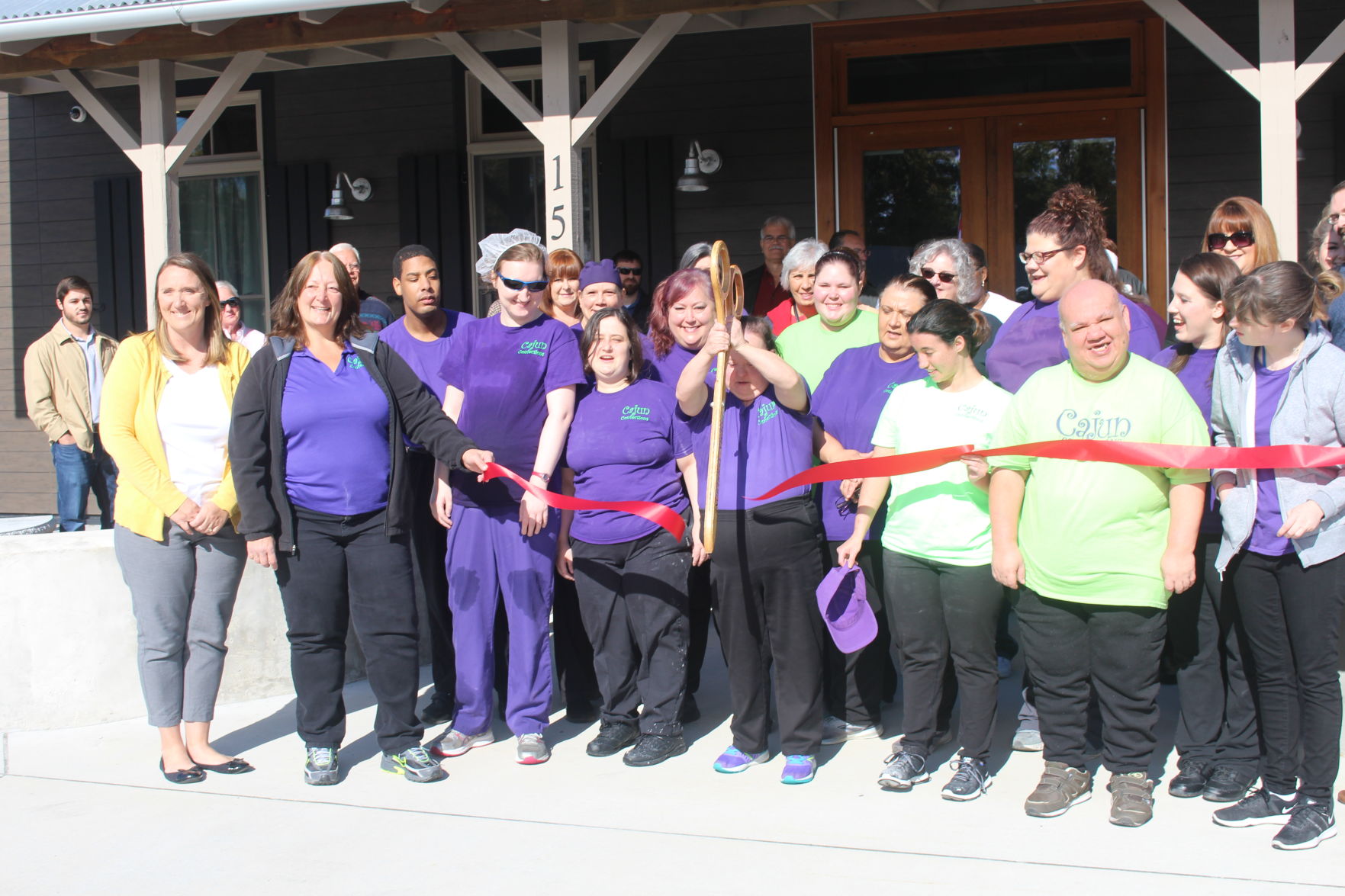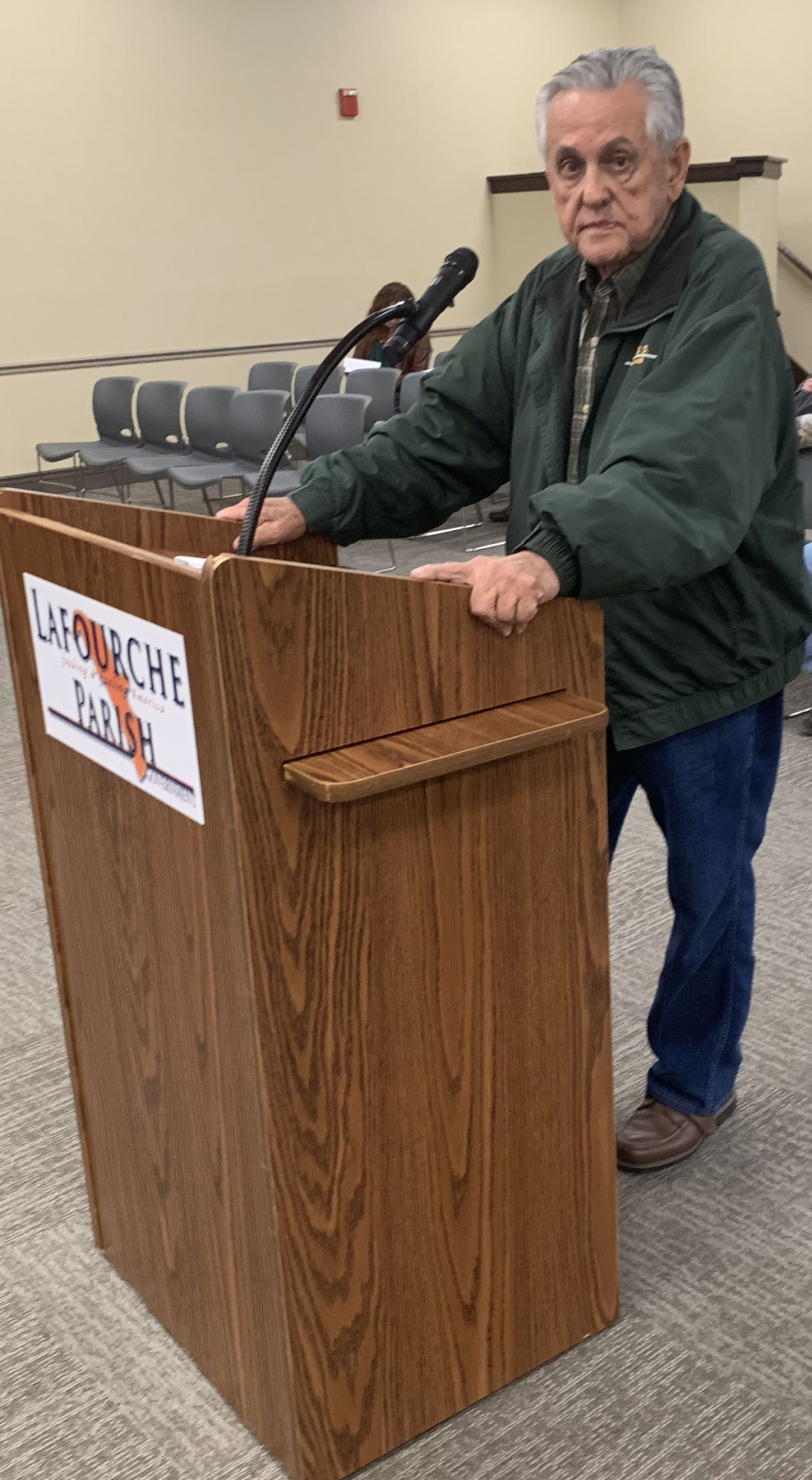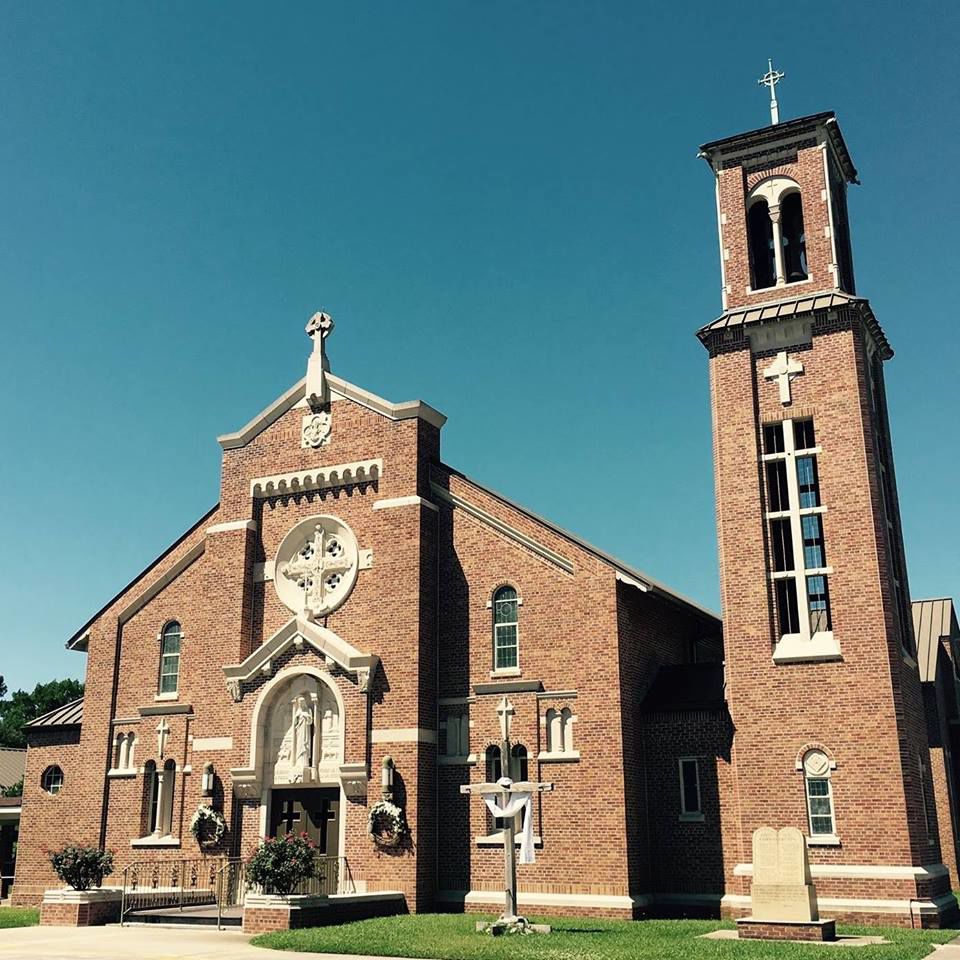
Confection shop gets a sweet start
November 28, 2018
Lafourche Recreation hands control back to individual districts for some areas
November 28, 2018More than 22 years ago a man of God was convicted for perpetrating acts of evil against a child and sentenced to life in prison by a Terrebonne Parish judge.
That sentence ended Nov. 5 when Robert Melancon, whose priestly assignments included churches in Terrebonne and Lafourche, died of natural causes at David Wade Correctional Center in Homer.
Melancon was 82-years-old.
At various points during his imprisonment Melancon maintained his innocence of aggravated rape, the crime for which a jury of seven men and five women found him guilty. Appeals courts rejected those protests, as did a federal court to which he applied for a writ of habeas corpus, a claim that he was unjustly imprisoned due to errors during the trial process. A statement from the Diocese of Houma-Thibodaux was released last week, announcing Melancon’s death and the place where he died. The statement says services for Melancon were held Nov. 15 but includes no details and notes his family’s request for privacy.
“We offer our prayers for all at this time,” concludes the message, signed by Diocesan spokesman Lonnie Thibodeaux.
Melancon’s passing is significant in several respects. His arrest and subsequent trial before State District Judge Johnny Walker drew widespread media attention. Both his crimes and the trial took place at a time when the Catholic Church — in Louisiana and elsewhere — appeared more interested in containing potential scandal than comforting victims alleging sexual abuse. Church leaders in recent years are moving toward greater transparency, acknowledging that methods of handling such allegations in the past were inappropriate, and in some cases seeking forgiveness for how such cases were handled.
A VICTIM SPEAKS
The acts of which Melancon is convicted continue paining his victim, for whom the death brings no closure. The man has broken public silence held for more than two decades. Melancon, he said, died without taking care of important business. The priest’s lack of contrition to the very end makes him “sick,” the man said in an interview Sunday.
“He never reached out and apologized for anything,” the man said. “He could have done something to make my life — not easier — but to make that part of my life conclude. But he went to the grave with it so that I would always have that over my head.”
According to the recollections of those who brought Melancon to justice, the prosecution was an uphill battle from the start, despite a cooperative witness whose story appeared unwavering.
Douglas Greenburg, who was Terrebonne Parish’s district attorney at the time, recalls “significant difficulties” with the prosecution of Melancon, including criticism in local circles that the priest was targeted because of his position by a man whose father was a non-practicing member of the Jewish faith.
“His then status as a Catholic priest had little to no effect on my decision to file charges based upon factual information presented … to bring the case to the grand jury, and to prosecute with the grand jury indictment filed against him. We had prosecuted numerous other persons on sex crimes before without reference to their status or position in our community. I followed my oath of office,” Greenburg said. “The problems began with the local police department’s unwillingness to arrest Melancon after bringing the factual basis for the charges to the District Attorney’s office. It was necessary for our office to obtain a warrant and enlist the help of the Orleans (authorities) to execute the warrant on Melancon in that jurisdiction, where he had been sent to avoid the attachment (on him) in Terrebonne.”
CHILD-RAPIST
Greenburg himself did not take an active role in the case, in part due to hi acquaintance with a relative of the victim, assigning it to two experienced assistants, Jason Lyons and Mark Rhodes, both members of the Catholic Church. In an interview, Lyons also said that Melancon’s position itself did not affect decisions of how to prosecute.
“We prosecuted him because of what he was a child-rapist,” Lyons said.
Court records show that accusations against Melancon to authorities began in 1995, although those same records show that church officials were already aware of the priest’s propensities for molesting young boys.
An east Houma high school student, then 17-years-old, made disclosures to a friend that he had been molested for a period of 5 to 6 years by the parish priest. The friend encouraged the teen to tell a high school counselor and the counselor then informed police.
Conflicted and frightened, the young man began having suicidal thoughts and was admitted to a psychiatric hospital for about a week.
“After (he) returned home, his parents were contacted by an attorney for the Catholic Diocese who wanted to talk to (him). Following this unsolicited contact, (the) parents filed a civil lawsuit against the defendant and the Catholic Church for the victim’s sexual abuse,” court records state.
The victim was 8-years-old when his mother asked Melancon, recently assigned to Annunziata Church, to let him join his older brother as an altar boy. Melancon agreed and often drove the boy home after mass or other events. Court papers indicate a period of grooming, with the priest taking the boy out to eat, sometimes buying him gifts like cassette tapes or clothes.
At trial, the victim testified that Melancon had invited him upstairs to his bedroom in the church rectory when he was about 9-years-old, and that they watched television together on some occasions behind the priest’s closed bedroom door. Touching of a sexual nature was initiated by the priest and progressed over time. The elements required for a prosecution of aggravated rape were established by the victim’s description of the acts committed, coupled with his age. The incidents, court papers say, occurred about once or twice a month from the time the victim was 9 until he turned 14.
A PATTERN OF ABUSE
Neither the victim nor his family were aware of what officials at the Diocese of Houma-Thibodaux keenly knew. Another youth, identified in court papers as R.F., was 11-years-old when he met Melancon, who at that time was assigned to St. Genevieve Church in Thibodaux. The priest, court papers show, was assigned to St. Genevieve from 1973 through 1985. The mother of R.F. settled a civil claim made with the diocese for $30,000. The transfer of Melancon to Annunziata, victim advocates maintain, placed other boys in jeopardy.
Roger Stetter, a New Orleans attorney who has been a leading advocate in the courts for victims of clergy sexual abuse in Louisiana, says such actions by church leaders make them complicit in the crimes their priests commit.
“Priests that cover up for other priests are aiding and abetting,” said Stetter, whose successful cases have included others in the Diocese of Houma-Thibodaux, as well as New Orleans. After learning of the former Annunziata altar boy’s allegations, Greenburg gave his assistants a bright green light to move forward.
Greenburg also recalled a chilling conversation with his acquaintance who was related to the victim.
“(He) had told me that if we were not successful in our prosecution of Melancon that he himself would kill him,” Greenburg said. “I believed in his sincerity.”
Melancon was arrested June 28, 1995 on the charge of aggravated rape, which carried a potential death penalty. He was at that time 59-years-old. The law’s capital sentencing option has since been declared unconstitutional by the U.S. Supreme Court. But when the accusations were made against Melancon, a capital case could conceivably had been brought.
The victim said he was consulted by prosecutors as to what his preference might be, and he opted for having them seek life in prison.
“I was young and idealistic,” he said. And while in the years that followed, he thought about what might have otherwise occurred, he is still comfortable with his decision.
“I could have done that,” he added, regarding the life or death choice. In addition to the aggravated rape charge, indictments were issued for four counts of lewd and lascivious conduct upon two other males under 17 — one of them being R.F.
The two additional cases were not prosecuted because of the state’s statute of limitations, including that of R.F.
STEALER OF FAITH
Just prior to the commencement of Melancon’s Terrebonne Parish trial, the aggravated rape victim’s attorneys entered a civil settlement with the diocese for $800,000. His full and complete testimony at Melancon’s trial caused him to be hailed as a heroic young man of great courage by prosecutors and survivor advocates. The man identified as “R.F.” in court papers testified as well, his words allowed by Judge Walker because they indicated a pattern of behavior by Melancon.
“This man stole my faith,” R.F. told the jury.
Melancon’s attorneys noted the $30,000 settlement R.F. had received years before and told jurors “… he has 30,000 reasons to lie.”
The priest’s attorneys objected to the testimony, but the prosecution’s course was upheld by appellate courts. The other Thibodaux victim’s testimony was not permitted at trial because his dealings with Melancon began when he was in his latter teens rather than as a child under 12, as was the case with R.F. The other victim’s testimony therefore did not speak to the pattern, Judge Johnny Walker ruled.
The defense lawyers did their best to perforate aspects of witness testimony, attempting as was their task to plant seeds of doubt in the minds of jurors.
When the verdict was announced, the accuser and the two men who had alleged molestation by Melancon in prior years — including R.F. — stood with hands joined together in Judge Johnny Walker’s courtroom.
“I’m not sure what I was feeling,” the former Annunziata altar boy said, when asked to recall that moment. “I don’t know whether I even had time to react to it.”
SIGNS OF CHANGE
Melancon’s prosecution caused a crisis for many of the faithful in the Houma-Thibodaux Diocese. The trial was well-publicized, and devout Catholics were left to weigh the potential that a man of God in their midst had committed such diabolical acts, against the potential that evil forces intent on harming the Church had somehow conspired to create scandal.
In more recent times, cases in the U.S. and the rest of the world have been forcing church leaders out of their defensive mode, and into a course of action that involves acknowledgement and a more sensitive tone toward victims. Official policies have been put in place, and the level of protection for children and other members of the church family is seen even by staunch critics of the church as steps in the right direction. Among the bishops who have addressed the church’s shortcomings in the past and commitments to further change is the Most Rev. Shelton Fabre of the Houma-Thibodaux Diocese.
“Recent events regarding the response of leaders in the Church to situations and allegations of sexual abuse and harassment of minors and adults by clergy have again caused great anguish, concern, anger and confusion amongst the faithful,” Bishop Fabre’s statement reads. “For many, these events have reopened old wounds, and broken hearts anew. I count myself among those who have dealt with such feelings over these past few weeks. Careful investigation, response and resolution are necessary. I am grateful for the most recent action of Pope Francis with regard to these matters. However, even with these actions, I realize that nothing can fully alleviate the pain of those who have suffered sexual abuse at the hands of those who lead or minister in the Church.”
LEGACY OF PAIN
The depth of that pain regarding Melancon is still a topic of discussion.
The successful prosecution of Melancon led to communications received by Douglas Greenburg that suggested the damage done by the priest was more widespread than he had known.
“From feedback I received … apparently the breadth of the impact of our involvement in the Melancon prosecution and conviction was more than Terrebonne Parish-wide. I must admit that our attention to this case and many others was such that I was not particularly aware of the repercussions at that time … I heard other allegations concerning Melancon but had no opportunity to investigate … following my (re-election) defeat,” said Greenburg, who agrees with politicos who suggest that the defeat was due in part to backlash over the Melancon case. “I was told of a connection between Melancon and a younger man who had continuing adolescent problems following his assault at a Catholic school in Thibodaux, where Melancon developed a relationship with the child. The young man was killed in a motorcycle accident the week before his high school graduation and left a letter to his parents — high school friends of mine — in which he confirmed his abuse by the priest at the school. The parents identified the priest as Melancon. I also received information that two other boys from that school had been molested by Melancon, one committing suicide before he graduated from high school and one who killed himself not long after graduation. I don’t know if any investigation of these case ever occurred.”
Greenburg became aware of Melancon’s death from disclosure by The Times to him. He recalled a conversation with a man he knew, who was serving time with Melancon at one point.
“He advised me that I should never have any doubts or remorse regarding Robert Melancon,” Greenburg said. “He was confined with him in the penitentiary and … regarded Melancon as the worst inmate he had been in contact with in prison. He said Melancon told the inmates he had been forgiven for his crimes and would be forgiven for any future ones he committed.”
“I can only deeply sympathize with all of his victims, their families and those who placed any spiritual faith in him,” Greenburg said. “My sincere hope is that all who possess the authority to bring these creatures to justice will do so.”
The man whose initial accusation brought Melancon to justice says that his experience contains important lessons that the public at large as well as church officials, must realize.
“They need to know that when a child is hurt like that it never, ever goes away, it is always there,” he said, noting again Melancon’s failure to reach out. “I don’t know how a man of God would not try to close that, to go to his death without forgiveness. But he left me just hanging out there and for the rest of my life I will have that, that he never apologized. He never asked for that.”
The only contact he had concerning Melancon occurred about two years ago, when representatives of the priest came to his door asking if he would support a petition for early release due to on-going illness. Horrified by the contact, the victim refused.
Asked if he could have provided forgiveness if Melancon reached out for it, the survivor expressed some doubt.
“I don’t think so,” he said. “But I would have listened to what he had to say if he had asked.”
As for the Church’s stated intentions to be more vigilant and to deal better with victims of sexual abuse at the hands of clergy, the Melancon sex abuse survivor acknowledged that officials appear to be on the right path, or something close to it. But he is not ready to trust.
“They have really good intentions,” he said. “But very poor follow-through.”











